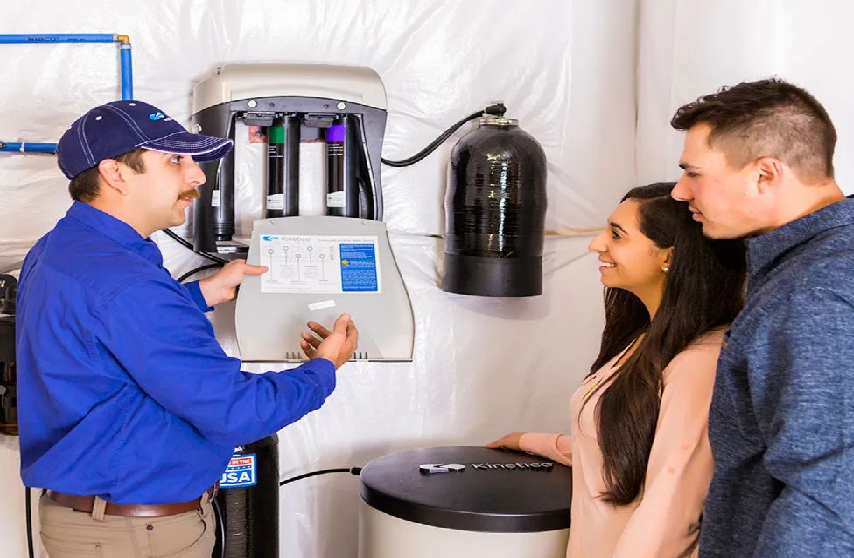Hard water can be a significant issue in many homes, causing everything from scale buildup in pipes and appliances to dry skin and dull hair. Fortunately, water softener systems offer an effective solution to this problem. However, choosing the right water softener for your home can be daunting, given the variety of options available in the market.
For optimal water softener installation, it’s advisable to consult an expert who can assess your specific needs, recommend the most suitable system, and ensure proper installation to maximize its effectiveness. Professional guidance can help prevent potential issues and ensure long-term satisfaction with your water-softening solution.
In this guide, we’ll walk you through the essential factors to consider when selecting a water softener system, ensuring you make an informed decision that meets your household’s needs.
Water Hardness Level
The first step in selecting a water softener system is determining the hardness level of your water. You can do this using a water testing kit or contacting your local water utility. Knowing the hardness level will help you choose the appropriate size and type of water softener to treat your water effectively.
Type of Water Softener
There are several types of water softener systems available, including salt-based ion exchange, salt-free, dual-tank, and magnetic water softeners. Each type has its pros and cons, so it’s essential to understand how they work and which one best suits your needs. For instance, salt-based ion exchange systems are highly effective but require regular salt refills, while salt-free systems are maintenance-free but may not be as efficient in treating very hard water.
Water Usage
Consider your household’s water usage when choosing a water softener system. Larger households with higher water consumption will require a more robust system with a higher grain capacity to ensure a consistent soft water supply. Conversely, smaller households may opt for a compact, lower-capacity system to meet their needs efficiently.
Regeneration Cycle
The regeneration cycle is when a water softener cleans and recharges its resin beads to continue softening water effectively. It’s essential to consider the regeneration frequency and efficiency when selecting a water softener system. Look for models with adjustable regeneration settings or demand-initiated regeneration features, which can help conserve water and salt.
Installation and Maintenance
Consider the installation requirements and ongoing maintenance of the water softener system. Some systems may require professional installation, while others are designed for DIY installation. Additionally, factor in the cost and availability of replacement parts and the frequency of maintenance tasks such as salt refills and resin bed cleaning.
Budget
Lastly, consider your budget when choosing a water softener system. While it’s tempting to opt for the cheapest option, investing in a high-quality system upfront can save you money in the long run by reducing energy bills, extending the lifespan of appliances, and minimizing maintenance costs.
Selecting the right water softener system for your home requires careful consideration of various factors, including water hardness level, type of system, water usage, regeneration cycle, installation and maintenance requirements, and budget. By evaluating these factors and understanding your household’s specific needs, you can choose a water softener that provides reliable, efficient soft water for years to come, improving your and your family’s overall quality of life.

